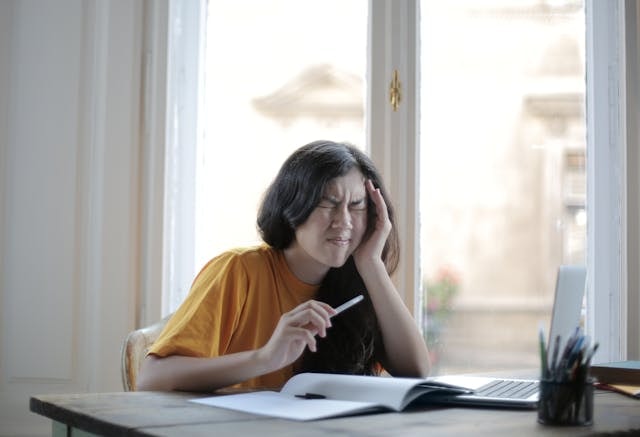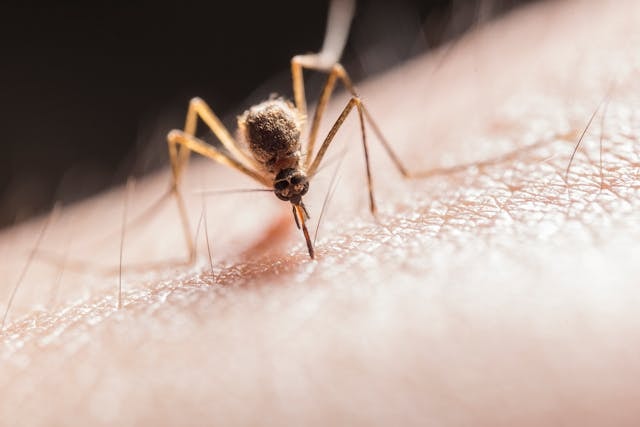
What are the Major Dengue Fever symptoms? How long do they last?
Time to read 4 min
Time to read 4 min
There are several important symptoms of dengue fever that you should track to know whether you have the condition or not. You can have a sudden onset of fever which may not go away after a few days. You can also have rashes as well as headaches, and pain behind the eyes which can affect movement of the eyes in some cases.
With around 100–400 million infections occurring each year worldwide, it is important to get tested regularly to ensure that you're not at risk. The symptoms can start to emerge around 4-10 days after the infection and last for around a week. You should get tested to start treatment so that you're protected and aren't at risk.
The dengue fever is caused due to the bite of infected female mosquitos which can transmit the virus to humans. When you have dengue fever your risk of developing secondary symptoms also rises. The fever is caused by the immune activity, which is when the infection is required to be treated.
A key symptom that can arise when you have dengue is a critically high fever, around 40 degrees Celsius, which would require treatment immediately. You can get a blood test done for the NS1 antigen which can indicate whether you have dengue.
You can get headaches as a secondary sign of dengue fever. This headache can be present along with a fever, indicating high immune activity and your body experiencing overall pain. You can take medication to treat the headache.
There may be pain present behind the eyes, which can cause issues with conjunctivitis or other issues. You can start the treatment for dengue and get the right medication for the pain experienced. There may also be issues with irritation as well.
You can experience muscle and joint pain, which can also persist after the fever has subsided. You can take medication and improve your overall strength to recover your muscular mobility as well. You should get regular check-ups done when you have these symptoms.
You can get a general sense of sickness that can exist throughout the duration of the virus. You can have a runny nose, a cough, irritation in the sinuses, etc. These can be symptomatic of the dengue virus, which can be tested.
Redness and rashes can also occur throughout the body, which can be a sign of dengue fever if you also have fever. You can get tested and start medication to help treat the virus to reduce the symptom severity.
You can have a nausea-like sensation throughout the duration of the fever. You can also experience dizziness as well, which can be connected to the virus or other issues. You should get tested immediately.
You may get high fever and then a sudden drop in your temperature, which may be referred to as defervescence. This can happen when you have dengue fever symptoms. You should get treatment started when you have this type of fever.
You can prevent the onset of dengue fever by following these important aspects. You can also ensure that you're avoiding any areas where mosquitos could be present as well, if you've had dengue in the past or are recovering from the virus.
You should remove any areas where there may be still water present in larger quantities. These can attract mosquitos if not cleaned properly or covered. You can also remove these areas from around your living areas.
Any areas with higher probabilities of mosquitos should be cleaned properly. You should avoid any open waste areas and dispose off waste correctly in the house hold or office area. This can reduce the risk of bacteria present and allow for a more cleaner environment.
By maintaining proper hygiene, you're able to reduce your risk of developing dengue fever. You can also maintain proper hygiene to ensure that you're able to avoid getting any viruses on your body. You can take regular showers and avoid areas where mosquitos may be present.
A mosquito repellent will help in preventing the bite that can cause dengue. It is important to know how is dengue fever contracted and how the symptoms of severe dengue can arise. If you have a stay or a vacation in tropical and subtropical areas then dengue fever is a key risk area.
If you've had dengue in the past and want to protect yourself, then getting the severe dengue (dengue haemorrhagic fever) vaccine will be key. You should get the vaccine and track any symptoms that you may experience.
You should wear clothes that completely cover your body and understand what is dengue fever risk in areas that you visit. You should also understand the risk of dengue hemorrhagic fever if you get a mosquito bite while in tropical areas or zones.
There is no specific cure or treatment for dengue fever, and it generally requires medication and oral rehydration treatment for replacing fluids. Your doctor may prescribe an Acetaminophen for pain relief and fever management.
You may also have to manage your symptoms for the duration of the week to ensure that you're able to recover in a timely manner. You should take medication for any pain experienced while your body deals with the dengue virus.
* * Medical Disclaimer - The following information is for educational purposes only. No information provided on this website, including text, graphic, and images, are intended as substitutes for professional medical advice. Please consult with your doctor about specific medical advice pertaining to your condition(s).

